10+ Sample Visitation Agreements
-
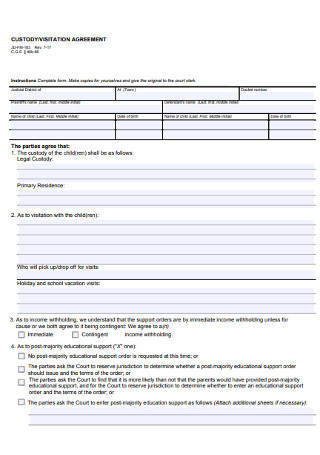
Custody Visitation Agreement
download now -
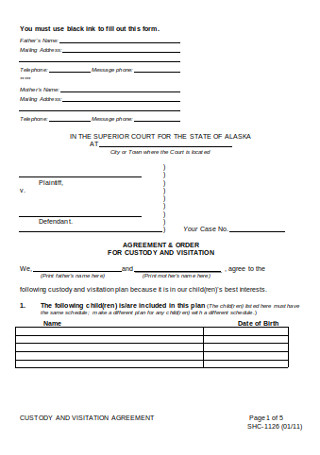
Agreement Order for Visitation
download now -
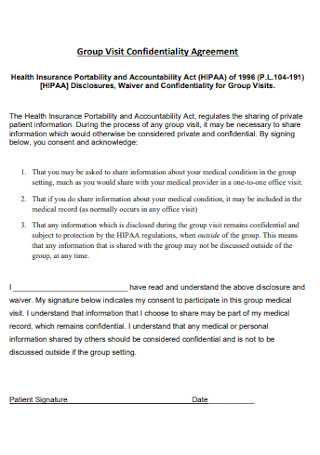
Group Visit Confidentiality Agreement
download now -
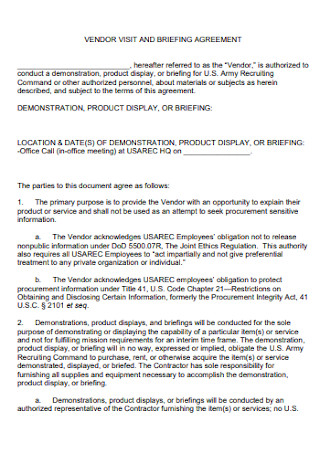
Vendor Visitation Agreement
download now -
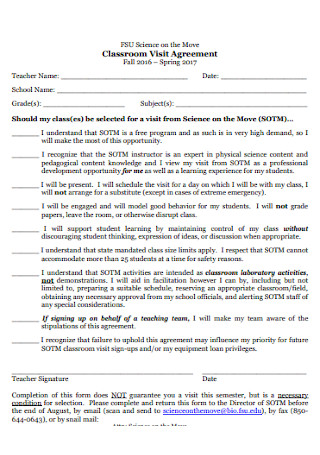
Classroom Visit Agreement
download now -
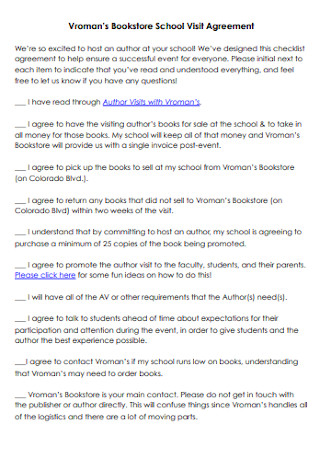
School Visit Agreement
download now -
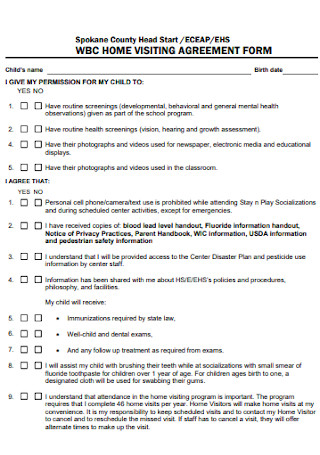
Home Visiting Agreement Form
download now -
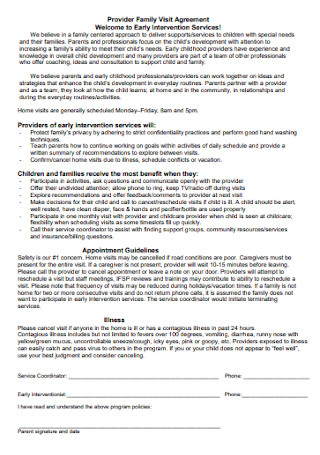
Provider Family Visit Agreement
download now -
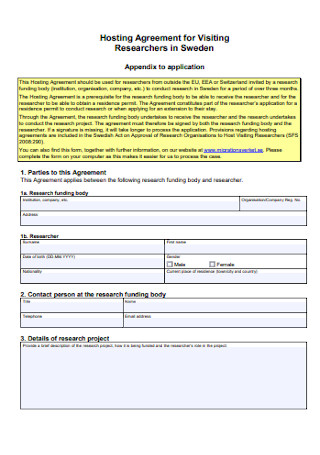
0BHosting Agreement for Visiting
download now -
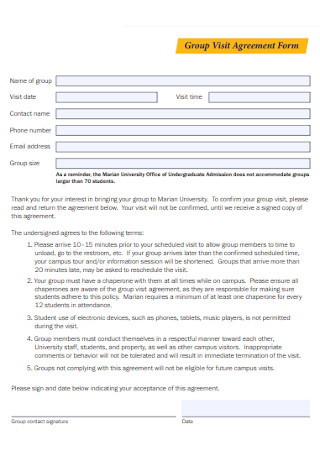
Group Visit Agreement Form
download now -
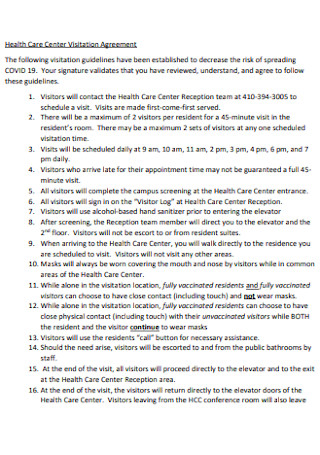
Health Care Center Visitation Agreement
download now
FREE Visitation Agreement s to Download
10+ Sample Visitation Agreements
What is a visitation agreement?
Types of Visitation Agreements
Reasons For a Visitation
How To Write a Visitation Agreement
FAQS
Is it Possible for Anyone to Create Their Own Visitation Agreement?
What’s the Distinction Between Visiting and Custody?
What are Some Purpose of a Visitation?
What is a visitation agreement?
A visitation agreement is a written document that specifies the terms and purpose of a visitation. It could just be a mutually agreed upon agreement with no legal ramifications, or it could be a court-executed arrangement. A visiting arrangement, for example, could be created as part of a child custody agreement. In the interim between a parental custody agreement, the parents of a minor child may reach an agreement on physical and legal custody of their kid.
Visitation agreements, on the other hand, aren’t just for child custody; they can also be used for school or business reasons. Typically, it is to obtain consent from involved parties regarding the goal of any visit and the limits that will be imposed following and during the visitation.
Types of Visitation Agreements
Depending on the circumstances, a visitation could occur due to a variety of reasons. It could be for a short research report on a specific incident in a specific location which would, then, require a visit. It could be for an observation report on what is going on and what happens in a given location before even being granted permission to enter. Let’s look at some different forms of visiting agreements:
Reasons For a Visitation
In our daily lives, we are visited by others, either spontaneously or with advance notice. It could be only to catch up or talk anything, but the visiting accomplished its goal both during and after the activity. However, regardless of the cause for the visitation, proper behavior must be observed. And here are some of the reasons why there is need for a visitation.
How To Write a Visitation Agreement
Step 1: Determine the Purpose of Your Visit:
Each visitation has a certain purpose. It is best to be specific in this regard so as not to mislead anyone on what it is about. Even though it is uncommon, a mix-up with many visits can occur. Because no one can completely know everyone else’s situation, it is recommended that the goal of the visit be stated explicitly in the agreement. If parental consent is required, the parent would want be aware of what they are agreeing their children to by doing so. Because they may consider it a harmful or unsafe visit.
Step 2: Set the Time and Date.
In rare circumstances where it becomes a surprise home visit, particularly when it involves recurring and abusive actions from a particular household, a surprise visit would serve its objective of catching it in the act. Aside from that, planned visitation should have precise days and times. So that the location where the visitation would take place has enough time to plan and set their own written limits and disclaimers. There are other places that have limited hours and days in which they are open for any type of visitation. It must be stated into the agreement so that anyone interested in a visit is not mistaken.
Step 3: Specifics and Directions.
Aside from the goal of the visit, it could be a good idea to ask if there is any other information that all parties should be aware of. What is the agreed-upon acceptable behavior that must be observed throughout the visitation. Or, in the instance of group visits, what are the exact measures they must take as they proceed with the visitations. It is done to specify what is expected and to avoid situations that could result in damage or harm.
Step 4: The Who.
What is the goal of the visitation? What information is available about the visitation? Most critically, find out who is participating in the visitation. There may be different parties engaged in changing custody agreements, so a change in child visitation agreement letter is also required. As a result, those who are expected and permitted to participate may include their names in the visiting letter, knowing that they can and are allowed to do so.
FAQS
Is it Possible for Anyone to Create Their Own Visitation Agreement?
Anyone can create their own visitation agreement that both sides agree on. However, if one violates the abovementioned agreements, there are no legal steps that may be taken unless the agreement was previously taken to court and constituted a legitimate court order. So, sure, anyone can create their own agreement that explains all of the whats and hows, and the agreement can be kept as long as both parties agree. Unlike contract agreements, a privately established visitation arrangement may lose its legality if challenged, as long as it is not taken to court.
What’s the Distinction Between Visiting and Custody?
A visitation occurs when one of the parents pays a visit to the home or place where the child is residing for a set period of time as agreed upon in the visitation agreement. The distinction is that that person would only be visiting the home of the person who has custody of that said child. The person who has physical or legal custody of a minor child has the authority to impose what they believe to be the best choices and actions for the child. They have the authority to determine what is the best course of action for a child’s well-being.
What are Some Purpose of a Visitation?
As referred above the list of reasons for a visitation, it could be summarized to the followings: As in the case of students, it might be for study objective. Or it could simply be a visit to learn more about their subject. As such, it could be an official visit when further confidentiality agreements are required. Or it might simply be a mutually agreed-upon arrangement between two people regarding the visiting time and place of the person who does not have custody. It could be for recreational and educational purposes, such as museum or classroom visits.
A visitation can serve a variety of functions. A written document, such as the examples above, would make any formal visits easier and faster to execute. The purpose of using a template is to minimize unnecessary arguments caused by a lack of written or formal information. As a response, it is recommended to use the templates we provide for any form of visiting!
